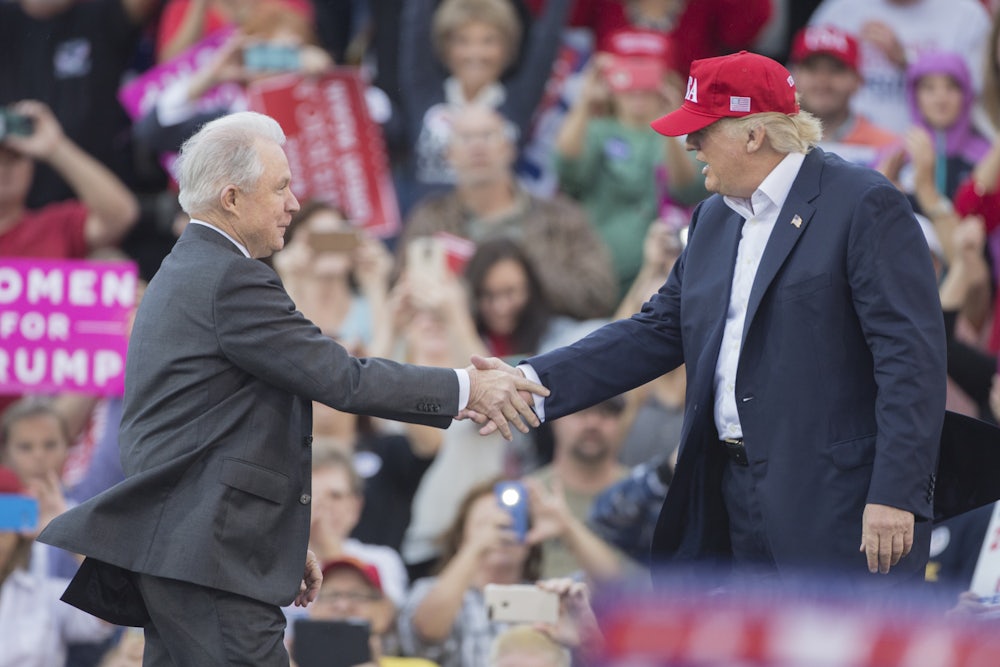According to The New York Times, President Donald Trump’s recent Twitter broadsides against the Department of Justice over its handling of the anti-Muslim travel ban stem from his fury at Attorney General Jeff Sessions for recusing himself from the investigation into Russian interference in the election. “In Mr. Trump’s view, [Times sources] said, it was that recusal that eventually led to the appointment of a special counsel who took over the investigation,” write Peter Baker and Maggie Haberman.
Assuming this reflects Trump’s true view of things, it is far more damaging than sloppy political analysis on the president’s part. It’s a window into his view that federal law enforcement should operate more or less as a protection racket for him. It lends credence to all of the reporting that suggests Trump sought to intimidate FBI Director James Comey into dropping his investigation of Trump allies, before firing him—a pattern of behavior that may amount to obstruction of justice.
The actual order of events goes like this:
- March 2, 2017: Sessions recuses himself from the Russia-Trump investigation.
- April 25, 2017: The Senate confirms Rod Rosenstein as deputy attorney general and acting attorney general for the purposes of the Russia-Trump investigation.
- May 9, 2017: Trump fires Comey, tries to pin firing on Rosenstein, eventually admits it’s because he was annoyed by the Russia investigation.
- May 17, 2017: After initial reluctance, Rosenstein appoints former FBI Director Robert Mueller as special counsel.
It doesn’t take a genius to derive from this that the real source of Trump’s misery is his disastrous decision to fire Comey. But if Trump believes otherwise, it’s because he thinks Sessions would’ve let him get away with firing the FBI director running the Russia investigation, and quite possibly would have helped him quash the investigation altogether. Whether Sessions would have obliged or not is (perhaps fortunately for Sessions) probably unknowable. But an enterprising member of the Senate intelligence committee might want to pose questions about Sessions’s behavior before and after his recusal, and Trump’s response to that decision, when the panel fields testimony from Comey on Thursday.
